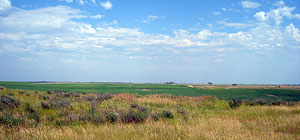2024
2023
2021
- Denial of Work-From-Home Requests: A New Era of Discrimination?
- April Showers Bring
- Restrictions on Employee Social Media
- Can Employees Be Forced to Get the Covid-19 Vaccination?
2020
- Holidays...To Pay or Not to Pay, What is Required
- EEOC Update on COVID-19
- Protection of Employee Health Information
- Civil Rights Win for LGBTQ Employees
- OSHA Recordkeeping Requirements During the COVID-19 Pandemic
- The Line Between At-Will Termination and Wrongful Termination
- Regulating Firearms in the Workplace
- Social Media Use in Hiring
2019
2018
- What Not to Wear
- Vicarious Liability for Unlawful Harrassment
- Employee Surveillance & Union Formation
- A Lesson in Retaliation
- Employers May Sometimes Judge a Book By Its Cover
- Mind Your P’s and Q’s . . . and BFOQs
- Severance Agreements
- U.S. Department of Labor "Paid" Program
- Revisiting Records Retention
- Calculating the Regular Rate
- Independent Contractor or Employee?
2017
- Sexual Orientation Discrimination
- DRI Membership: It’s Personal
- Is Extended Leave a Reasonable Accommodation?
- Parental Leave
- Pay Disparity
- Religious accomodation in the workplace
- Equal pay and prior salary information
- I quit! How to avoid constructive discharge
- You Can't Shred Email
- Navigating Unemployment Claims
- Considering Criminal History in Pre-Employment Decisions
- Defamation Claims from Former Employees
- Mixed Motive Causation
2016
- Requesting Accomodation: Kowitz v. Trinity Health
- Antitrust Law in Human Resources
- An Evolving Standard: Joint-Employment
- What Does At-Will Employment Mean for Employers?
- Let's Talk About Wages
- THE FLSA: CHANGES ARE COMING
- Follow Up: Obesity and the ADA
- The Importance of Social Media Policies
- Is Obesity a Qualifying Disability under the ADA?
- Retaliation on the Rise: The EEOC Responds
- What Motivates You?
2015
- "But I thought ...
- Who’s expecting? And what is he expecting?
- Are You Still Doing Annual Performance Reviews?
- Who is Your Employee?
- The unpaid intern trap Part II
- “We’ve been the victim of a cyber-attack”
- So, a Hasidic Jew, a nun in a habit and a woman wearing a headscarf walk into your office?
- The unpaid intern trap
- Pregnancy in the workplace
- Let's talk about honesty.
- "Did You Know" Series - Part I
- Conducting an Internal Investigation
- What HR can look forward to in 2015!
2014
- The chokehold of workplace technology
- Does your company have trade secrets?
- North Dakota Construction Law Compendium for 2014
- Does the North Dakota baby boom affect you?
- Ban the Box? Why?
- The end of the world as we know it
- Everybody has an opinion
- Changes, Changes, Changes!
- Nick Grant presents at North Dakota Safety Council's 41st Annual Safety and Health Conference
- Email impairment: A potentially harmful condition
Apr 26, 2024

